

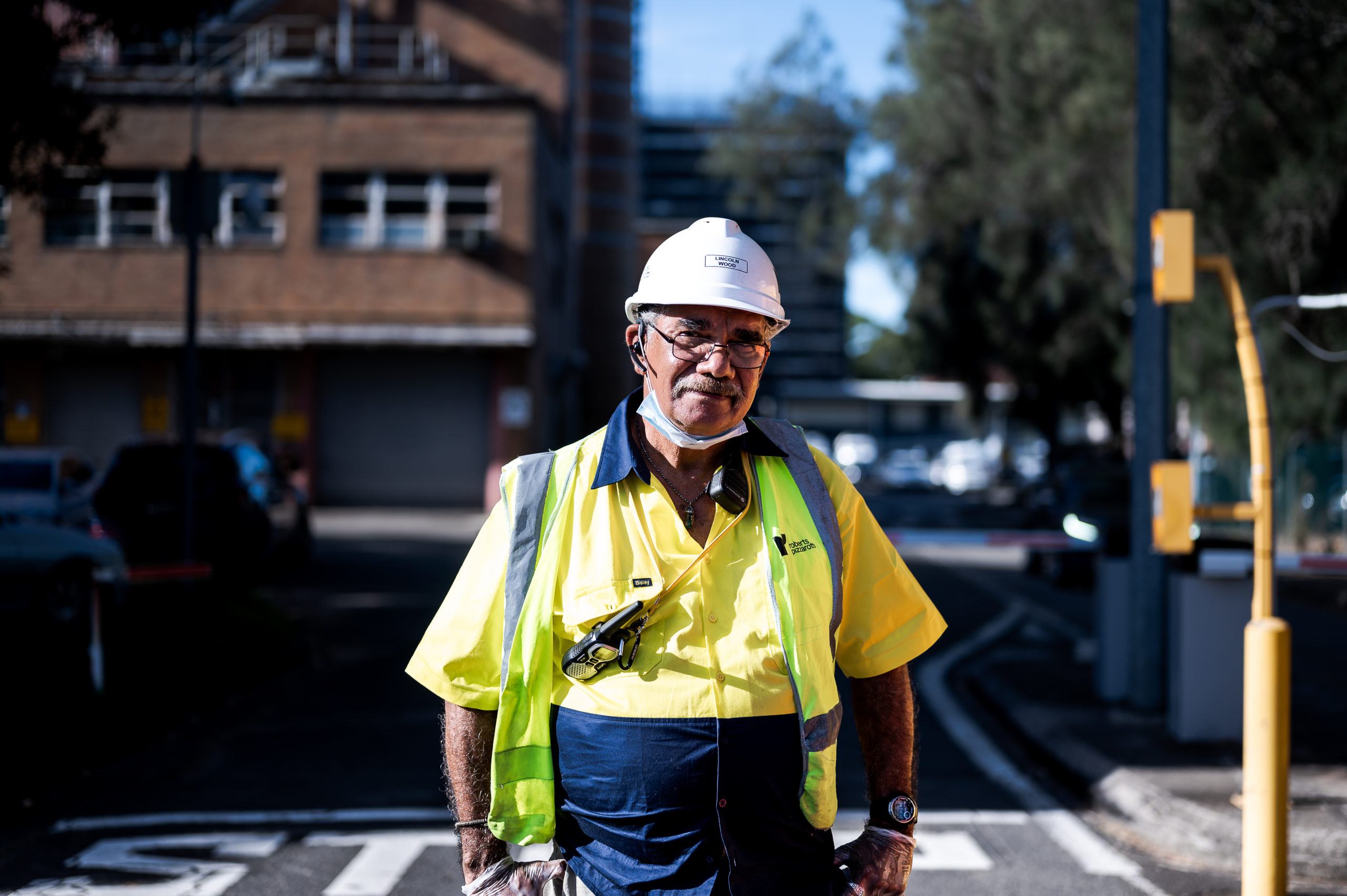
Because of my nationality, age, and my current health condition, I and many other Aboriginal and Torres Strait Islanders are at a greater risk of contracting Coronavirus.
When the COVID-19 virus appeared my doctor recommended I take 14-day self-isolation as a precaution. I returned to work last Wednesday.
I’m at high risk because I’ve had a quadruple bypass. So, naturally, I have heart disease, diabetes, high blood pressure and I’m 65.
There’s not much I can do except try and look after myself. Wash my hands regularly and maintaining ‘social distancing’ where possible.
Isolation is not a new thing for our Aboriginal communities. I’m a descendent of two of the biggest Aboriginal nations in New South Wales, Wiradjiri and Gamilaroi.
At the time of invasion, we were all rounded up and put into one place. That’s like rounding up the Italians and the French and the Greeks and putting them in one community.
Within the first 100 years of colonisation, 70% of my people were killed. That’s seven in ten people, men, women and children. Today, many families struggle from intergenerational trauma and poor health-related illnesses. That’s our Aboriginal Contemporary Australian history.
So this one could/will be killer. It could wipe out my race if it gets into all of the rural areas.
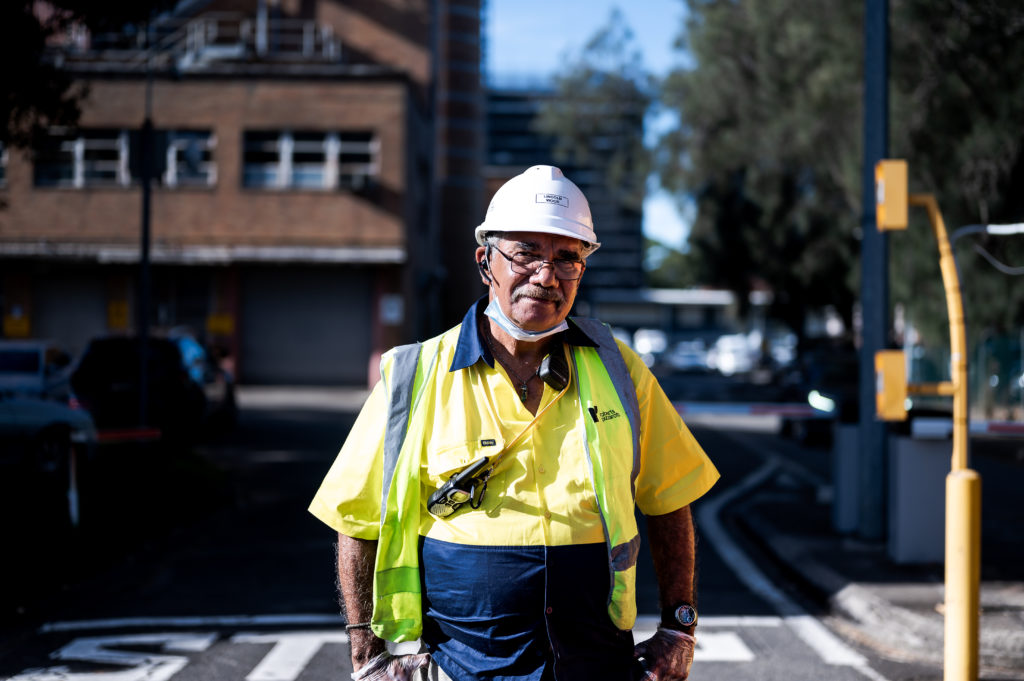
My grandfather, my father, and my mother and I have fought for our equal rights, equal citizenship over the last 60 – 80 or more years.
We only got the right to vote in 1967 and that took an Australian referendum, which my grandfather lobbied for. It gave us the right to be counted in the census and the right to vote. We did not have the right to vote before 1967.
So in essence, I only became a citizen of Australia when I was 14 years old, despite us being the original inhabitants for over 80,000 years. We’ve had a lot of wins but we still have a long way to go to achieve true equality.
For Aboriginal people, community and family life are at the cornerstone of our culture. It’s very hard to only live and connect with one other person, but thankfully I have one dear and close friend who is currently my housemate, “Faith”, during this current pandemic. Without whom, I doubt that I would have coped very well with this isolation situation at all!!!
I have four daughters and 17 grandchildren they all live in Campbelltown and two of my daughters work in schools, so it’s a different situation for them. But I am unable to visit them in this current state of affairs with the virus.
They’re isolating. I love my grandchildren. It only takes me one visit to go and see them, but I’m not allowed to travel to the other side of the city. I’m only allowed to travel to work and back to where I live in Manly. I have a permit in the car that will allow me to do that.
And my mother, she’s still alive and she’s down south. The retirement village she’s in is in “shut down” now. No visitors, to protect them.
I went through all the trouble of bringing her over from Western Australia last year. So she’d be close to her family. My mother worked all over Australia. She’s a retired minister of religion.
Before starting work in the construction site here, I worked in universities. My job was to encourage my people to get tertiary qualifications. I have studied four Undergraduate degrees, and I was a coordinator of a program for rural Aborigines to come to Sydney, and be trained as teachers and social workers.
And that was the University of Western Sydney, Milperra campus. And then I left there and I went to Bourke as a Commonwealth Education Officer and I came back to Sydney to the Australian Catholic University where we created another program like the one at Milperra except we didn’t draw people from all different communities.
We targeted one community. In that program in Moree, we enlisted 27 students, of which 25 graduated as teachers. It was my job to go to Moree and visit the department of education, Catholic Education Office, and the Local Community.
I think everyone has an innate gift. And this develops through confidence from support systems.
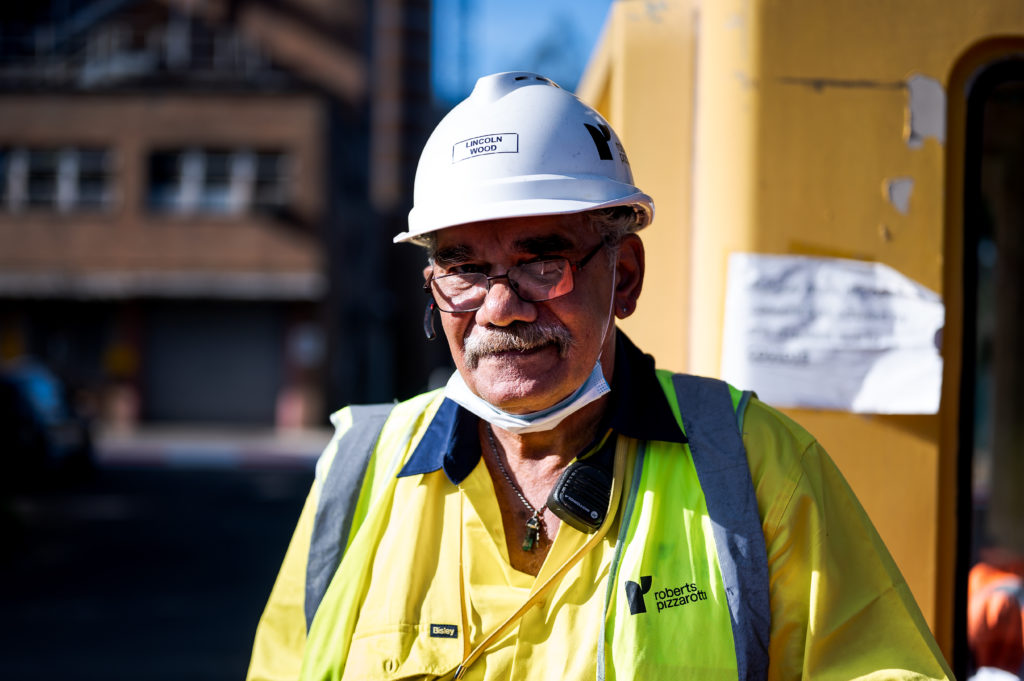
My confidence and work ethic are inspired by my great grandfather, my grandfather, my father, and mother, my father was a very confident man.
He was a unionist and the union trained him in public speaking. He was highly motivated and worked alongside my grandfather and my mother. They were founding members of some very important Aboriginal bodies in this country.
One was called the Federal Council for the Advancement of Aborigines and Torres Islanders (FCAATSI) in the 1960s. Another one was the Foundation for Aboriginal Affairs here in Sydney.
Now, back then when I was an early teenager, there was this man named Charlie Perkins. He was our first Aboriginal University Graduate, but it was my father and my grandfather who supported him and pushed him and made sure he went on to graduate, he also became one of the highest-paid Aboriginal public servants in Australia.
And there was a place called Moree which was renowned for its racism. There were mineral water baths there. Black people were not allowed to swim in them. Charlie Perkins organised a busload of University students to go up there and protest, back in the 60s. It was called “The freedom ride”.
You’d think people would be empathetic to the plight of my people if they ever find out about what happened to my people. You have no idea what happened to the original inhabitants of Australia.
When I first moved over to Manly, I was driving a bus for a local club, and without fail, every trip I drove to the club, somebody on the bus would ask me what country I was from. “Ummm, I’m Aboriginal!!” 😊
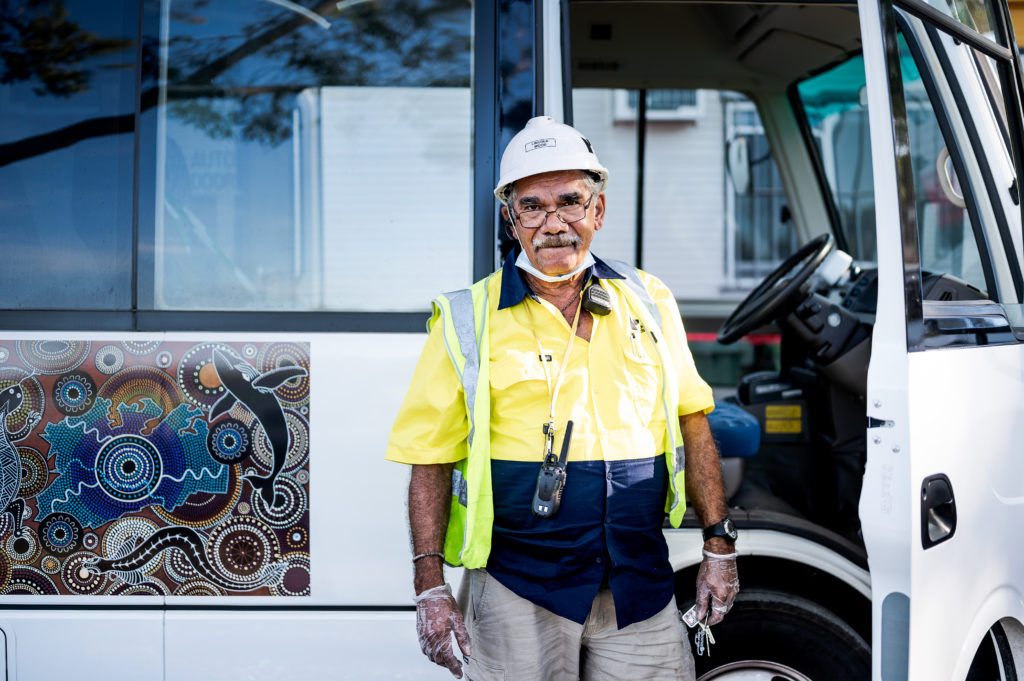
I’m an urban Aboriginal. I grew up in the Western suburbs of Sydney, Seven Hills! I was born in Stanmore. As far as I’m aware, Aboriginals, when going through initiations would experience some form of isolation.
Like for instance, the hunter and gatherer would go solo in search of food for their family and community as part of their journey to manhood!
The fires that broke out not long ago in Australia. It wouldn’t have happened until the white man came. Because we manage the land properly.
In the history books, we were dubbed as being “nomadic”. But that’s not true. Our movement is part of moving away from specific areas of land that we’d burn off, for plants to regenerate with food. And then we’d return.
A lot of our plants need fire to thrive like the Waratah (large shrubs or small trees native to Australia). Unless there’s a flame to open the seed the Waratah would not grow.
So we’d have a controlled burn off the plants in each area of the land for regeneration. After each regeneration, we’d move on to the next area. So we understood the life cycle. The land was healthy, people were healthy. “The land is our mother”.
That’s what I love about this construction company I’m working for right now. Before that structure went up, they had a traditional smoking ceremony and an acknowledgment of country.
Acknowledgment of the original inhabitants of this area. And it’s an Australian Company in partnership with an Italian company! If you look at the biggest crane there, there are three flags. The one in the middle is the Aboriginal flag. They put up the Aboriginal flag on all four of our sites in Sydney.
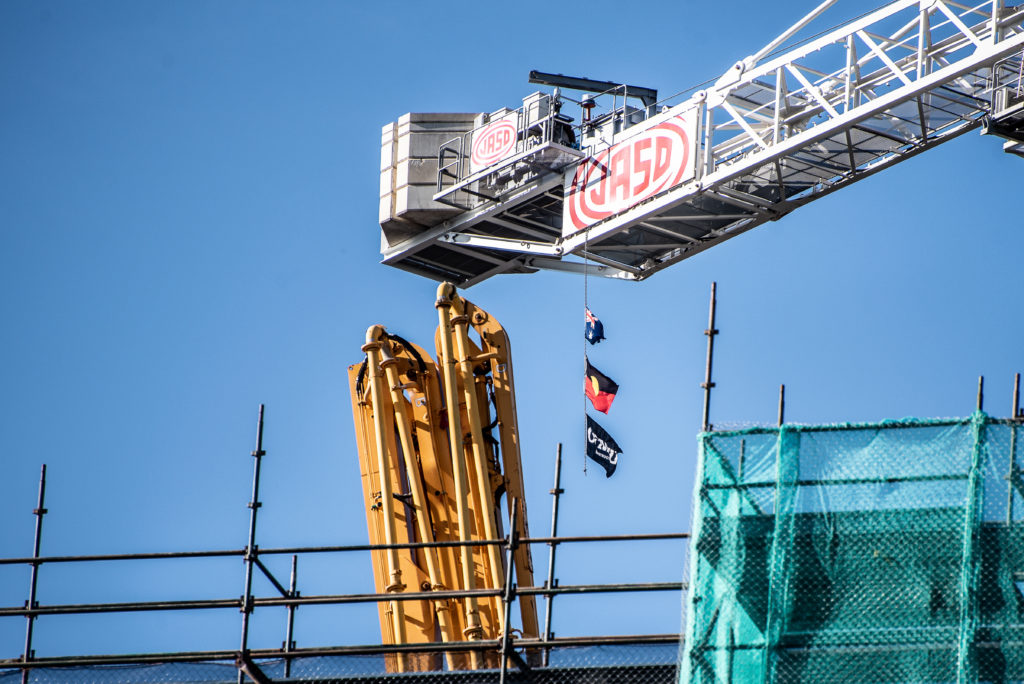
I guess I’m proud to be a part of this company, Roberts Pizzarotti. So far, I’ve found six other Aboriginal people working for this company. One of them is a site project engineer. Young man, 28 years old. My job is traffic control and driving the Company’s bus. I am interacting with construction workers when I’m driving them to and from the construction site.
I always have been a people person. I like to have lots of human contact. In Manly it’s so multicultural. I’ve met a lot of diverse people from different countries and different languages and stuff. I love it.